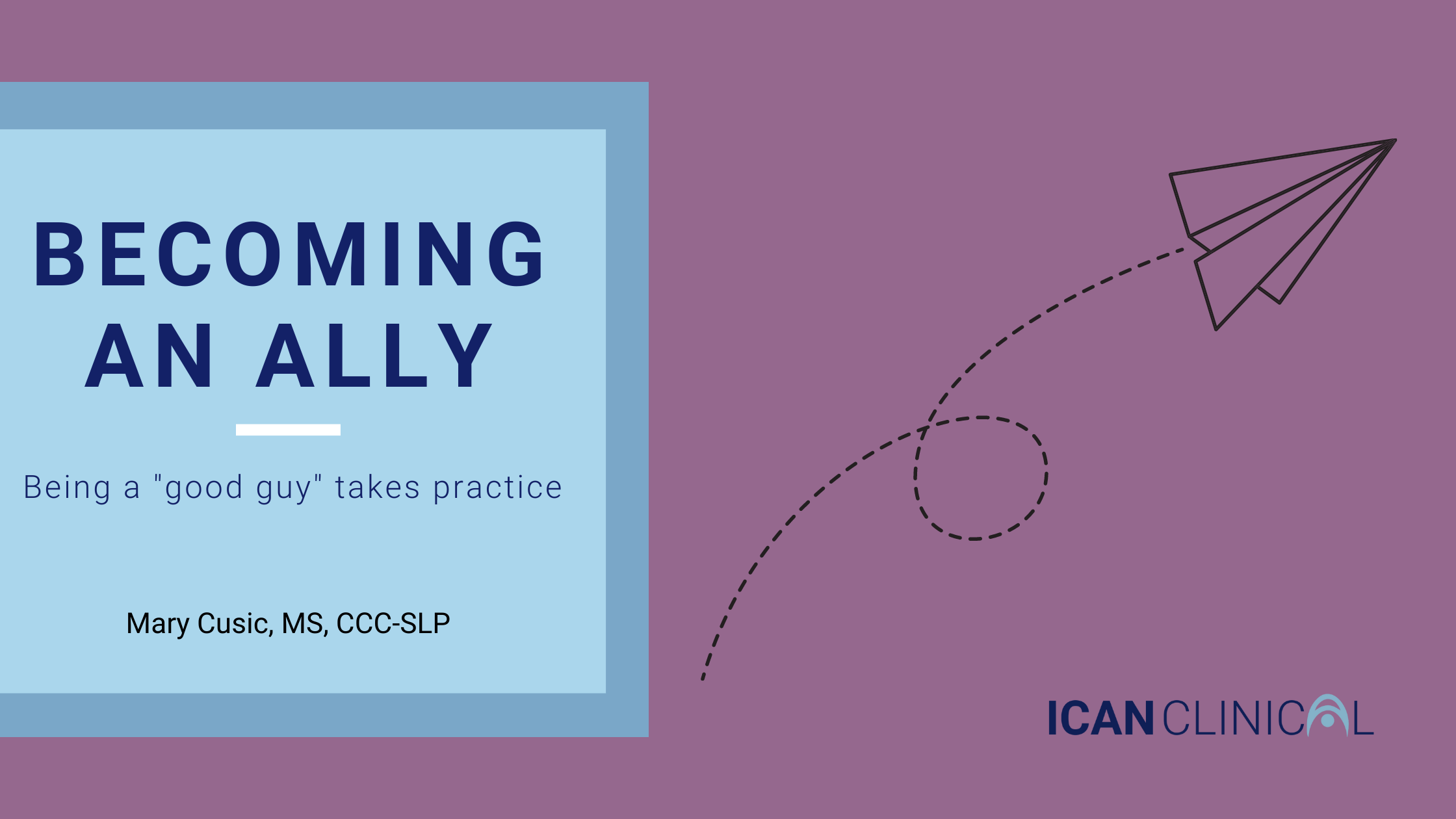
Being an Ally
(It Starts with Listening or Turn Your Listening Ears on)
“The kids are going to hate you.” That was the last thing that I expected to hear while playing yard games at a party in St. Louis. But it was the first reaction from a young woman when I told her that I was in graduate school for speech-language pathology and she wasn’t joking. I was so shocked by this that I responded “Okay” and stopped talking to her/changed the topic. I wasn’t ready to listen. I wasn’t ready to be an ally.
“Ally” is having a moment right now. I just searched “how to be an ally” and got over 19 million results. It’s definitely something people are talking about, and it can be easy to get lost in the many interpretations.
So, what does it mean to be an ally?
At its core, allyship means caring deeply about a community that you are not in and wanting to support people within that community. amélie lamont developed a guide to allyship that is not specific to any movement, which makes it useful for any conversations about diversity, equity, and inclusion. You can find The Guide to Allyship here.
You learn what is important to people within the community by listening to them.
To my fellow neurotypicals (NTs), take a few deep breaths and prepare to be humbled. I believe that service providers have good intentions. I count us as one of the “good guys”, but that is not everyone’s experience. The first time that I heard someone describe speech or ABA therapy as “abuse”, I was shocked. I also got defensive. How could anyone possibly think that my life’s work is abusive? But guess what? My hurt feelings don’t matter.
Why don’t my feelings matter?
I don’t have autism.
As much time and energy as I devote to autistic people, autism isn’t my identity. When I leave work, I can turn off my work brain and interact with the world as a neurotypical person. That means that it’s not about me. It’s not about neurotypical people. It’s about the autistic child, sibling, friend, client, grandchild, or student in our lives. We aren’t members of the autism community, but we can be allies. We shouldn’t try to lead this conversation. We can help drive change, but first we need to listen to learn about the priorities and concerns of autistic people.
There are many guides about allyship that are specific to autism. The Autistic Self-Advocacy Network (ASAN) has written about it here. Jordan Wilson- Dalzell wrote about it here on the Art of Autism. Autism Level Up! is an organization dedicated to support autistic individuals and to educate allies and advocates. Autism Level Up! is a partnership between two developmental psychologists- one of them is autistic.
Listening is not easy and it’s never “finished”. That is true for every important thing in our lives.
Amplifying autistic voices and education resources are another part of allyship and deserve their own posts, which are in the works.
Mary can be reached at CORT@i-can.center